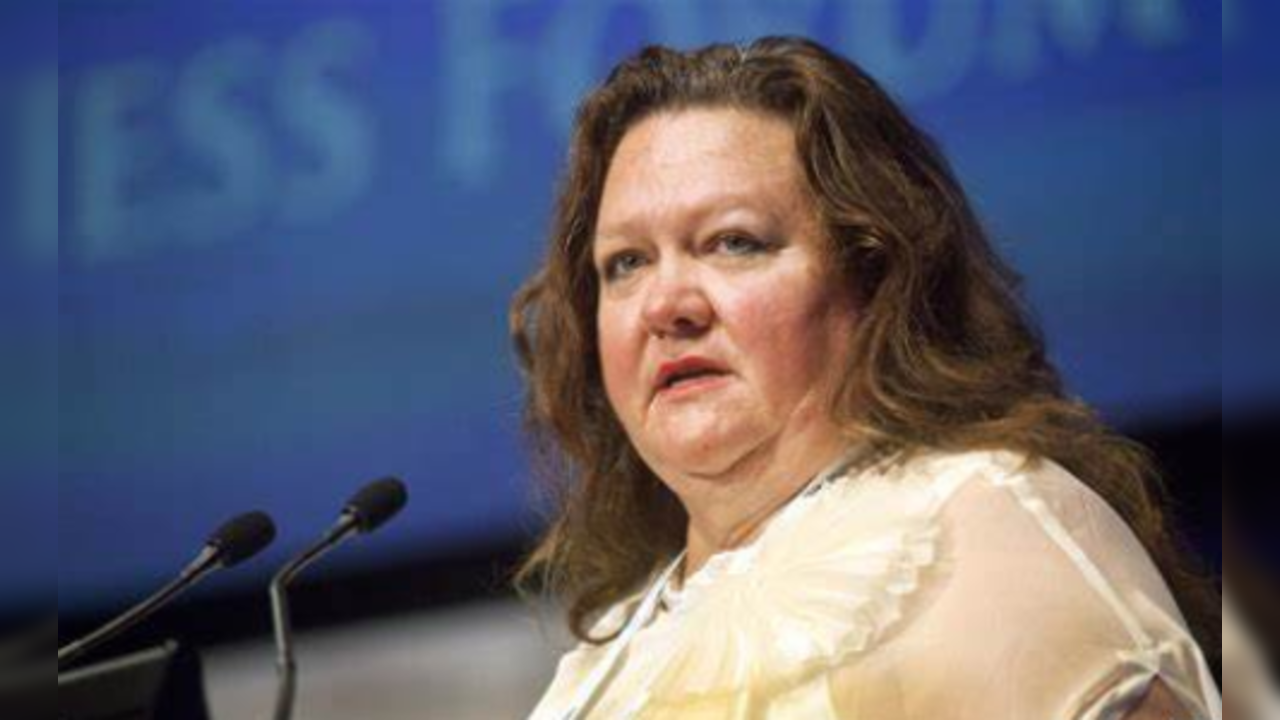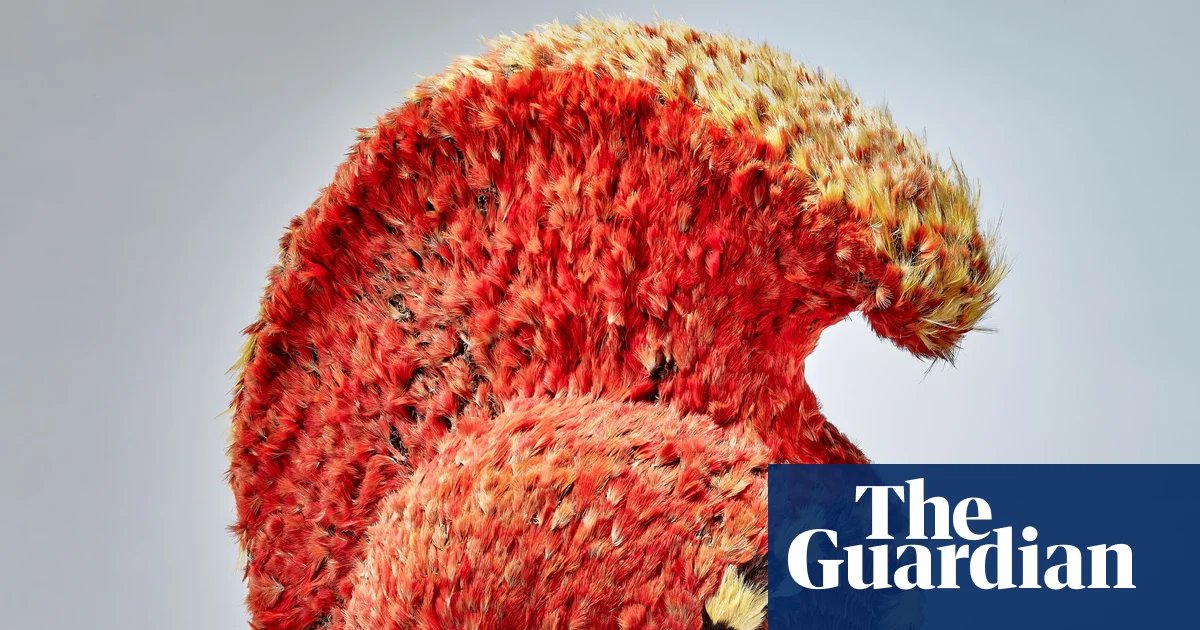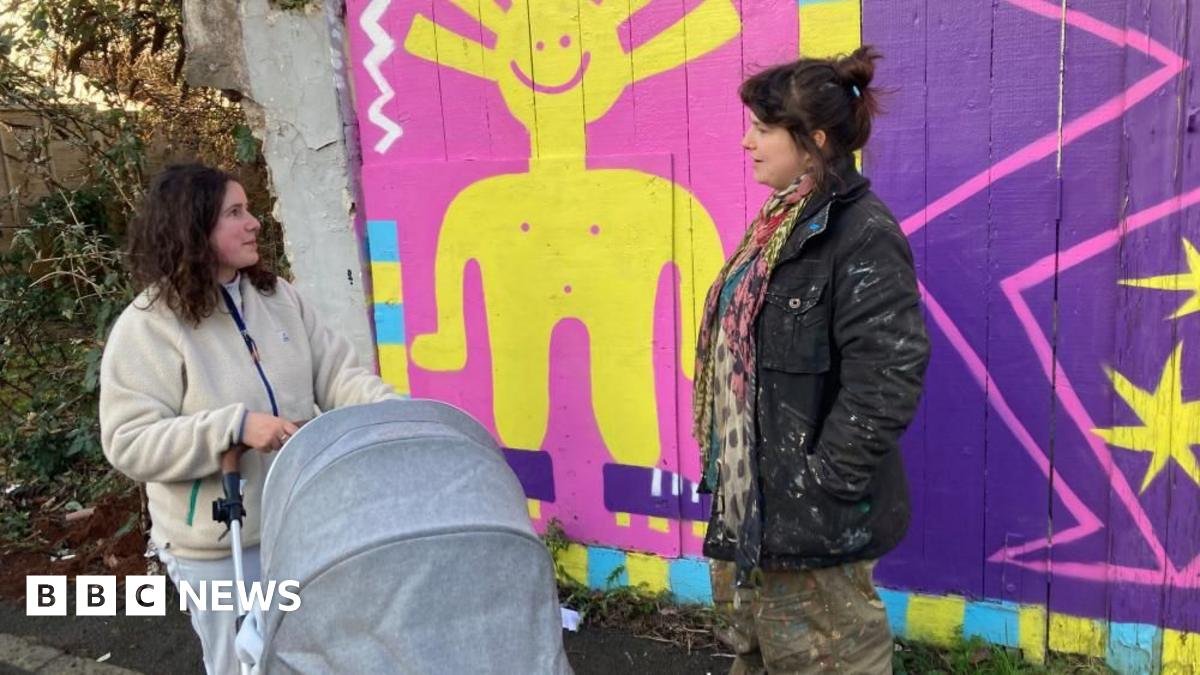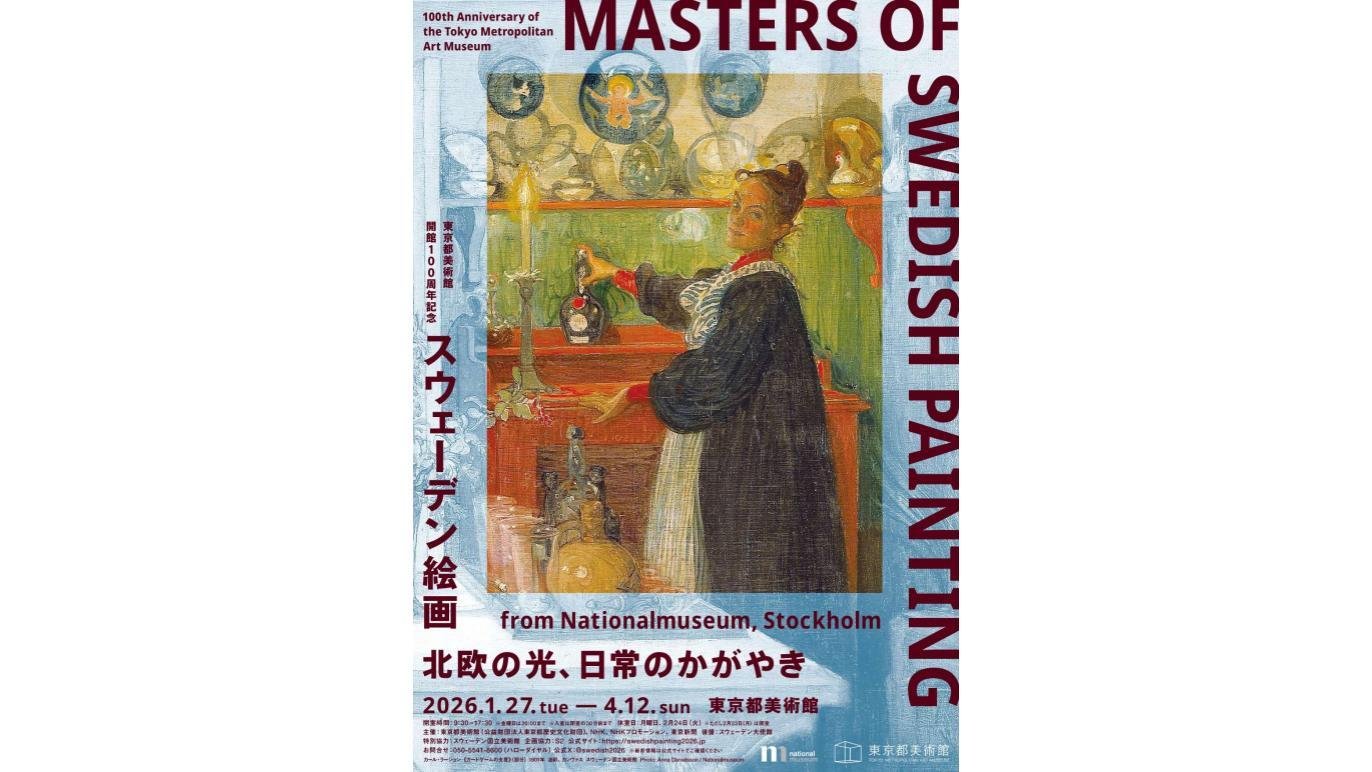
The exhibition of portraits by Namatjira, a 40-year-old Aboriginal Australian who won the prestigious Archibald Prize for portraiture, also includes depictions of other famous people, including Queen Elizabeth II, former Australian football player Adam Goodes, and former Prime Ministers Julia Gillard and Scott Morrison, all in Namatjira’s signature style, which frequently employs humour and exaggerated features to interrogate the rich and powerful.
“I paint the world as I see it,” Namatjira said, in response to Reinhart’s reported attempts to have her image removed, in a statement shared with TIME by the NGA on Thursday. “People don’t have to like my paintings, but I hope they take the time to look and think, ‘why has this Aboriginal bloke painted these powerful people? What is he trying to say?’”
According to Namatjira, who explained his intention for the exhibition at an NGA panel discussion in March, the portraits are meant to convey that “we are all equal in Australia, no matter where you’re from, no matter what you do, what background you’re from, or what heritage you’re from, we’re all Australian.” He remarked that the wall colors—red, black, and yellow—represent the Aboriginal flag. The Time stated.
Rinehart called NGA council director Nick Mitzevich and chair Ryan Stokes directly to request that her portrait be removed, and associates of her company have filed over a dozen complaints with the gallery, according to the Sydney Morning Herald on Wednesday. A group of 20 Australian swimmers—a sport for which she is known to contribute crucial funding—have also lobbied against her photo being shown, calling it “offensive to a great Australian.”
Rinehart, reached through Hancock Prospecting, did not immediately respond to TIME’s request for comment.
The gallery is not backing down, saying in a statement on Wednesday that it “welcomes the public having a dialogue on our collections and displays.”
The National Association for the Visual Arts likewise issued a statement supporting the ability of artists to “create art about any subject and by any means.”
“While Rinehart has the right to express her opinions about the work,” the association’s executive director Penelope Benton said on Thursday, “she does not have the authority to pressure the gallery into withdrawing the painting simply because she dislikes it.”
Rinehart has previously courted conflict with Indigenous Australians. In 2022, Hancock Prospecting withdrew A$15 million (about $10 million) in sponsorship funds from Netball Australia when the national team expressed support for Donnell Wallam, an Indigenous netballer who refused to wear a uniform with the mine’s insignia. Wallam expressed alarm about Rinehart’s late father’s racist remarks against Aboriginal Australians, including the suggestion that those who had not “assimilated” should be sterilized—comments on which Rinehart has long kept mute, despite mounting public pressure to apologize.
Instead of shielding the unflattering depiction of herself from public view, Rinehart has become a victim of the so-called Streisand effect—the phenomenon in which attempts to suppress attention to something ironically only cause it to be amplified—as news of her dissatisfaction with the art exhibition has inspired international coverage, resurfacing her family’s unsavoury history as well as widespread memes and mockery on social media.






